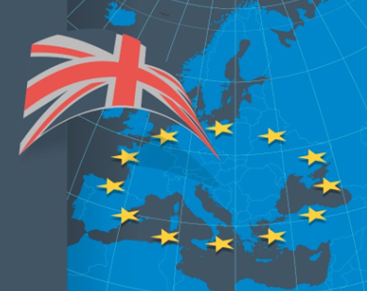
A state of certain uncertainty: using Brexit as a catalyst for designing a flexible supply-chain
This January marks five years since David Cameron first publicly mentioned renegotiating Britain’s place within the European Union. Since then, the British political landscape has changed dramatically. We’ve seen two general elections, a fraught Labour Party leadership contest, the rise and demise of UKIP and all the while the issue of Europe has continued to dominate headlines.
Lengthy political discourse surrounding prospective disentanglement has delayed progress, culminating in what Michael Barnier, the European Chief Negotiator for Brexit, last month described as a ‘disturbing’ state of deadlock. Five years on, Britain today continues to operate as an EU member state, according to EU jurisdiction, and under the trade laws of the EU Single Market. Whilst this lack of progress is frustrating for many of those involved, the resulting state of limbo presents a significant opportunity for procurement professionals.
Understanding how to prepare for Brexit is not about creating a one-time solution, but rather about creating a smart and dynamic supply-chain that will be adaptable and capable of withstanding any future changes long after an established post-Brexit status quo. In this sense, Brexit represents a fantastic opportunity to harness a sense of urgency to drive long overdue progress. The smart professional will use this ‘crisis mentality’ as a value-added exercise, using Brexit as a catalyst for pushing procurement issues higher up the corporate agenda.
A key threat to supply chains is uncertainty, and with Brexit comes an interesting case of scheduled uncertainty. Unlike natural disasters or stock market crashes, we have an advanced warning of coming change. Whilst we do not know the nature of the change, we can and must plan accordingly to equip our supply chains to be robust enough to mitigate any and all potential outcomes of Brexit. This robustness will, ironically enough, stem from flexibility.
Achieving flexibility can be aided by focusing on three key areas. Firstly, begin with mapping your supply-chain to understand the end-to-end value chain of your supplier base. This will enable you to understand trade flows, and just how much impact exiting the EU Customs Union will have upon your supply-chain. At present, one distinct product or service can be assembled between factories in multiple EU member states, with parts often travelling across borders, often to and fro, as part of the production or service design process. Mapping your supplier base will allow you to visualise trade flows and understand the real impact increased tariffs and regulations could have on your suppliers, including predicting the possible outcome of operating under ‘worst case’ WTO conditions.
Secondly, after you have mapped your supply chain, invest in the design and development of appropriate risk management strategies and procedures. This could include segmenting your supplier base with Brexit specifically in mind and drawing up contingency plans if, for instance, a supplier raises costs due to increase tariffs, or at a worst case, ceases trade with the UK entirely. Having effective risk management procedures is essential to mitigate and manage trade within an uncertain environment, reducing lead times and identifying potential bottlenecks. Habituating risk analysis into frequent procedures will proactively prepare the business for inevitable disruption caused by Brexit. This will prevent panicked reactive decision-making, and allow for a strategic, calm and measured approach to change. Further and perhaps more importantly, effective and accelerated mitigation of these risks could prove to be a key competitive differentiator in your market.
Third, conduct a gap analysis to identify potential pressure points, particularly any skills deficit. Having the right people in place with the skills to manage ambiguity throughout your supply-chain is essential. Think creatively around how you train your current workforce to equip them with the necessary skills needed to confidently embrace the challenge of Brexit and also with how you attract the talent necessary to filter down flexibility, creativity and innovation throughout your supply-chain.
Whilst drawing any ‘lesson learned’ from the financial services sector is controversial, arguably the financial community demonstrated in the last 20 years that the ability to react more effectively to change than your peers can have significant financial benefit. Clearly Brexit poses a risk to companies with international supply chains, but a pragmatic and creative approach reframes this risk as an opportunity. So my call is rather than bemoan the uncertainty, embrace Brexit and prepare to gain competitive advantage as a result.
By Jessica Tray, Analyst, State of Flux